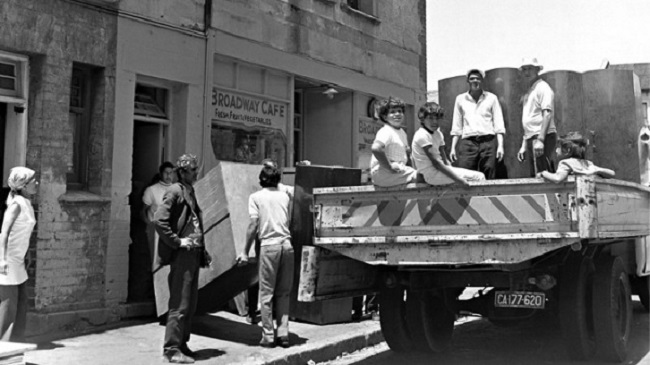In a compelling novel and an engaging memoir, Jane Rosenthal finds richly textured accounts of Muslim and Indian experiences in South Africa.
An Imperfect Blessing
Nadia Davids (Umuzi)
Frangipani blossom and a pigeon adorn the cover, neither as softly romantic as they might seem, both unlikely survivors of the fierce wind that blasts the suburb in which Nadia Davids has set her debut novel. This is Walmer Estate, on the edge of District Six.
At the heart of this novel is Waleed, from a Muslim family, descendant of slaves from Malaysia, and already born when his family and community were forcibly removed from District Six in Cape Town.
Decades later, he still spends time in that ruined wasteland, walking around. “Now, as then, he had three or four books in his bag. One was always his own, a notebook filled with his writing, the others a careful selection … the works of poets and writers of fiction, comrades unmet and unseen …”
This family saga is also the story of Alia, a 14-year-old girl. Waleed is her uncle, but also a poet, intellectual, and political activist who discomforts and unsettles his family. Several long-standing family feuds underpin this portrait of Muslim Cape Town, sandwiched between the mountain and the docks, between white liberals – and neoliberals – of the university and the comrades of Crossroads and Chris Hani’s memorial service.
The narrative runs between 1993 and the mid-1980s, when the people of Crossroads were being harassed by the Witdoeke. Some years later, after a shooting at the local mosque, Alia and her older sister are sent to a private school in a leafy suburb. Nonetheless, influenced by Waleed, they get themselves to Hani’s memorial service in the cathedral in the city centre.
Davids’s portrait of this corner of Cape Town’s hugely diverse society is rich and full of nostalgia; it is also complex and rigorous. She asserts the African identity of this centuries-old community, the principled take of many of their leaders on political issues, their contribution to the struggle, and their survival in what is the still-imperfect blessing of liberation from gross apartheid.
But ignorance and prejudice exist everywhere and the author includes many ruthlessly funny vignettes about their manifestation in Waleed’s community. And even Waleed has difficulty introducing his white, non-Muslim lover to his mother.
Davids recounts in considerable detail celebrations such as weddings and Eid, which offset the teargassing and police dogs. She also acknow-ledges the spiritual core that holds the people together.
Getting up to eat breakfast at 3am during Ramadan, the month of fasting, Alia looks down the street from the balcony of their house: “[She] was alone, secluded … but all around her she could feel people, the people of her street, preparing with faith and purpose … In these hours, in this month, people she’d mocked and glared at suspiciously throughout the rest of the year became, by some unnamed alchemy, as close to her through thought and intention as her own family.”
Davids has already made her mark with two plays, At Her Feet and Cissie, and other writings. An Imperfect Blessing will, one hopes, reach an even wider audience than her plays have done. It’s a novel that should be both respected and cherished.
Coolie, Come Out and Fight
Mohamed F (Mac) Carim (Porcupine Press)
This engaging and interesting read is a politically modest “struggle” memoir, which may have been written primarily to please the author, and for his family and friends.
See full report by Jane Rosenthal via Mail & Guardian
PHOTO CREDIT: District Six in Cape Town is the setting for Nadia Davids’s ‘An Imperfect Blessing’. (Gallo)







